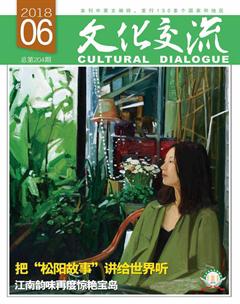一鏡湖光開曉日
周維強
日本史學家杉山正明在他的著作中說:杭州自南宋時代至元代始終是罕見的繁榮的大城市。如果說南宋的杭州還是都城,到了元代,政治中心移到大都,失去了南宋宮廷、中央政府的杭州,依然迎來了另一種繁榮,一種沒有了政治的經濟繁榮,呈現出一種自由與開闊的氣象,這在世界城市史上也是空前的。
元代文人虞集在《書楊將軍往復書簡后》里寫道:
臨安,故宋行都,山川風物之美,四方未能或之過也。天下既一,朔方奇俊之士,以風致,自必樂居之。
城市繁華,文化昌盛,更兼山川秀美,所以元代一統江南之后,北方奇俊之士南來杭州樂居,也就順理成章了。
明人田汝成《西湖游覽志馀》卷二十一“委巷叢談”里說:
元時,豪杰不樂進取者,率托情于詩酒。其時杭州有清吟社、白云社、孤山社、武林社、武林九友會。儒雅云集,分曹比偶,相睹切磋,何其盛也。
其中蒙古及中西亞多民族詩人關于西湖及杭州的詞曲佳話可以一說。且從元明文獻里摘取一二,既助諸君游湖之興會,或也可窺見時人的湖山趣味及漢文化成就之一斑。
貫云石:欸乃聲中別有春
貫云石,原名小云石海涯。祖父是元朝開國大將阿里海涯。云石是西域畏兀人,出生在大都西北的高粱河畔。《元史》里說,云石“神彩秀異。年十二三,膂力絕人,使健兒驅三惡馬疾馳,持槊立而待,馬至,騰上之,越二而跨三,運槊生風……或挽強射生,逐猛獸,上下峻阪如飛,諸將咸服其趫捷”。后來,云石又從姚燧學習,文武全才。
云石曾在大都朝廷中做官,后來辭官隱居江南。云石在《清江引》的曲子里表達了自己的心情:“競功名有如車下坡,驚險誰參破!昨日玉堂臣,今日遭殘禍。爭如我避風波走在安樂窩!”云石本是“吾生宦情素薄”,辭職南隱杭州也在情理之中。
據說云石賣藥錢塘市中,“詭姓名,易服色,人無識者”。有一回,云石看見有漁夫織蘆花做成被子,就要拿自己的絲綢來換。漁夫就說:“君欲吾被,當更賦詩。”云石果然援筆而作:“采得蘆花不涴塵,翠蓑聊復藉為裀。西風刮夢秋無際,夜月生香雪滿身……”這個故事里,云石固然雅人深致,這個漁夫也有六朝煙水氣。
云石在西湖上慣看春風秋月,寫了小令《正宮·小梁州》春夏秋冬四曲,寫湖上四時風景之勝:
春風花草滿園香,馬系在垂楊。桃紅柳綠映池塘,堪游賞。沙暖睡鴛鴦。[么]宜晴宜雨宜陰陽,比西施淡抹濃妝。玉女彈,佳人唱。湖山堂上,直吃醉何妨?
畫船撐入柳陰涼,一派笙簧。采蓮人和采蓮腔,聲嘹亮。驚起宿鴛鴦。[么]佳人才子游船上,醉醺醺笑飲瓊漿。歸棹晚,湖光蕩。一鉤新月,十里芰荷香。
芙蓉映水菊花黃,滿目秋光。枯荷葉底鴛鴦藏。金風蕩,飄動桂枝香。[么]雷峰塔畔登高望,見錢塘一派長江。湖水清,江潮漾。天邊斜月,新雁兩三行。
彤云密布鎖高峰,凜列寒風。銀河片片灑長空。梅梢凍,雪壓路難通。[么]六橋頃刻如銀洞,粉妝成九里寒松。酒滿斟,笙歌送。玉船銀棹,人在水晶宮。
這四首小令,分別寫了西湖山水的春夏秋冬四季景致,文采、趣味直追唐人白居易、宋人蘇東坡。
云石以西域人氏而深得湖山佳趣,發而為曲。這既說明當日西湖山水已為西域東土江北江南四方人士所喜,也見出云石漢文化修養的深厚和審美趣味的雅致。
阿魯威:老我南州
阿魯威是蒙古人,做過泉州路總管,泰定帝朝為翰林侍講學士。但他后來也是辭去官職,來到杭州定居。《太和正音譜》說阿魯威的詞是“如鶴唳青霄”。阿魯威寫有一支小令《雙調·蟾宮曲》:
爛羊頭誰羨封侯?斗酒篇詩,也自風流。過隙光陰,塵埃野馬,不障閑鷗。離汗漫飄蓬九有,向壺山小飲三秋。歸賦登樓,白發蕭蕭,老我南州。
這支小令,雖然沒有直接描寫西湖或杭州的景致,但浸透在里面的那一份隱居心情,對恬靜的退隱生活的書寫,應該是阿魯威脫離宦海來到杭州以后所寫的。“老我南州”,“南州”可以泛指南方,但在阿魯威這兒,恐怕他心里所指的應該是杭州吧?史學家陳得芝教授在一篇討論元代杭州與蒙古人色目人文化演變的論文《從“銷金鍋兒”到民族熔爐》中,也把阿魯威作為一個個案寫了進去。
薛超吾:揀西施好處都游遍
薛超吾,字昂夫,號九皋,漢姓馬,元代回鶻人。薛超吾集子散佚早,又無碑傳記載,所以元明之際就將薛昂夫、馬昂夫、馬九皋認作是三個人。影響甚大的《太和正音譜》就作為三個曲家分別評論。孫楷第先生1959年發表《薛昂夫考略》,考定薛昂夫、馬昂夫、馬九皋為同一個人。
薛超吾做過官,晚年也隱居杭州。詞曲風格飄逸,他本人也是頗以詞曲自負,“自命千古一人”。薛昂夫寫過七首小令《中呂·山坡羊·西湖雜詠》,寫西湖四季風光。本篇且舉其中寫春天和秋天的兩首:
山光如淀,湖光如練,一步一個生綃面。扣逋仙,訪坡仙,揀西施好處都游遍。管甚月明歸路遠,船,休放轉;杯,休放淺。
疏林紅葉,芙蓉將謝,天然妝點秋屏列。斷霞遮,夕陽斜,山腰閃出閑亭榭。分付畫船且慢者,歌,休唱徹;詩,乘興寫。
回鶻人薛昂夫真是好興致,游西湖要“揀西施好處都游遍”,不管他月明歸路遠,也要詩酒流連湖山。
所以比薛昂夫年長約14歲的趙孟頫格外欣賞昂夫。趙孟頫寫的《薛昂夫詩集序》里說:“昂夫西戎貴種,服旃裘,食湩酪,居逐水草,馳騁獵射,飽肉勇決,其風俗固然也。”而昂夫“乃事筆硯,讀書屬文,學為儒生,發而為詩樂府,皆激越慷慨,流麗閑婉,或累世為儒者有所不及”。松雪忍不住感慨:“嗟夫!吾觀昂夫之詩,信乎學問之可以變化氣質也。”
斡玉倫徒:錢塘最好是湖邊
斡玉倫徒,字克莊,西夏黨項人。
斡玉倫徒曾在國子學師從大學問家虞集。元代恢復科舉,蒙古人、色目人和漢人、南人是分兩張卷考試和發榜的,蒙古、色目曰右榜,漢人、南人曰左榜。右榜易考,左榜難試。斡玉倫徒可能是當時試漢人、南人科目而取得進士的為數不多的少數民族人氏之一。斡玉倫徒后來也是《宋史》的編修官。虞集編刻自己的文集《道園學古錄》也是應斡玉倫徒之請。
斡玉倫徒寫的關于西湖的詩《題西湖亭子寄徐復初檢校》:
芙蓉花開一萬頃,錢塘最好是湖邊。曉風得酒更留月,春水到門還放船。笙引鳳凰天上曲,賦裁鸚鵡座中賢。令人卻憶徐公子,深閣焚香日晏眠。
萬頃芙蓉花開,“錢塘最好是湖邊”,斡玉倫徒所言甚是。
廼賢:一年湖上春如夢
廼賢是元代內遷中原的哈喇魯人的后裔。哈喇魯,古名葛邏祿。史學家考訂廼賢身世,以為廼賢是在鄞縣長大的。鄞縣是元代慶元路路治所在地。慶元,古稱明州,今浙江寧波。
廼賢至正六年(公元1346年)北上大都以求取功名,博得聲譽。在大都的六年時間里,廼賢和王冕等有交游。但終于失望而歸。廼賢的詩篇里也有寫西湖的,如《次段吉甫助教春日懷江南韻》:
花底開尊待月圓,羅衫半泡酒痕鮮。一年湖上春如夢,二月江南水似天。修樸每懷王逸少,聽歌卻憶李龜年。卜鄰擬住吳山下,楊柳橋邊艤畫船。
“卜鄰擬住吳山下”,亦可見廼賢對西湖對杭州的無比留戀。可惜廼賢后來不得終老錢塘,他是在元至正二十八年(公元1368年)五月,病逝于直沽軍中。直沽,即今天津。一代才人,晚景凄惻,寂寞以歿,讓人無限感慨。
薩都剌:少年豪飲醉忘歸
薩都剌,祖居西域,本人則出生在代州雁門(今山西代縣),一說是生于鎮江。明人徐象梅撰著《兩浙名賢錄》,說薩都剌晚年在杭州,“每風日晴美,輒肩一杖掛瓢笠,腳踏雙不藉,走兩山間。凡深巖邃壑人跡所不到者,無不窮其幽勝。至得意處,輒席草坐,徘徊終日不能去,興至則發為詩歌。”當然也有說薩都剌晚年沒有住在杭州。
薩都剌重游西湖寫過《西湖絕句》六首,明人田汝成《西湖游覽志馀》卷十一“才情雅致”里收錄了這六首絕句:
涌金門外上湖船,狂客風流憶往年。十八女兒搖艇子,隔船笑擲買花錢。
少年豪飲醉忘歸,不覺湖船旋旋移。水面夜涼銀燭小,越娘低唱月生眉。
紫騮驕踏落花泥,二月江城雨過時。拂曉市河春水滿,小船多半載吳姬。
惜春曾向湖船宿,酒渴吳姬夜破橙。驀聽郎君呼小字,轉頭含笑背銀燈。
待得郎君半醉時,笑將紈扇索題詩。小紅簾卷春波綠,渡水揚花落硯池。
垂柳陰陰蘇小家,滿湖飛燕趁楊花。繁華一去風流減,今日橫堤幾樹鴉?
本篇筆記的篇名《一鏡湖光開曉日》,所引的詩句,出自薩都剌的一首七律《次韻王侍郎游湖》:“一鏡湖光開曉日,萬家花氣漲晴天。”多么明麗而爽翠的西湖景色啊。能夠寫出這樣的西湖詩歌,即使是虛構這位作者晚年隱居杭州,也是入情入理的了。
Contemporary Japanese historian Masaaki Sugiyama (born in 1952), a specialist in the history of the Yuan Dynasty and the Mongols, speaks high of Hangzhou in eastern China, a megacity that enjoyed flourish prosperity in the centuries from the Southern Song Dynasty (1127-1279) to the following Yuan Dynasty (1279-1368). According to the Japanese scholar, Hangzhou as the capital city thrived in the Southern Song and continued to thrive in the Yuan. As the Mongols ruled from Dadu (the present-day Beijing) in the north, Hangzhou continued to enjoy an unprecedented prosperity: Economy bloomed due to a laissez-faire ambiance and it enjoyed freedom and acquired a cosmopolitan majesty that fitted its status. All this makes Hangzhou a miracle in the worlds history of cities.
In the Yuan Dynasty, the material and cultural prosperity and scenic beauty of Hangzhou attracted people from the north and the west to settle down and enjoy a life of pleasures the city offered. The Mongols ruled by China by dividing the national population into a four-class hierarchy. Mongols and the Semu people (which referred to the 20-plus ethnic minority peoples from the west who helped the Mongols conquer the oriental empire) were privileged. When they came to China, they assimilated themselves into Chinese culture. They learned to write and speak Chinese, among other things they picked up from their acclimatized life in the east.
These new residents of Hangzhou wrote poems about their lives in the city and their appreciation of the West Lake. Many poems by these poets now can be perused in the literatures of the Yuan and the Ming (1368-1644). These poems testify how well these Mongols and the Semu people had absorbed Chinese culture and acquired a graceful taste about natural beauty, which had been popular with Chinese intelligentsia for over 1,000 years before these nomads stepped in from the north and the west.
Yun Shi was a Uyghur who lived in Hangzhou in the last part of his life after he resigned from a central government post in Dadu. His grandfather was a military general that helped found the Yuan Dynasty. A chapter in? is dedicated to Yun Shi, describing him as a teenager with strong muscular strength and military training. Yun Shi studied Chinese under the tutelage of Yao Sui (1239-1313).
The mysterious recluse generated some urban legends in his lifetime. It was said that Yun was a pharmacist who sold herbs in the market. Nobody recognized who he really was because he used false names and dressed in the commoners style. Another legend recorded a transaction he made with a fisherman who sold sheets made of reed flowers. Yun wanted to trade his silk for the sheets. The fisherman said no and instead, asked him to write a poem as payment. Yun wrote a poem. The poem comes down in history.
Yun Shi wrote a suite of poems that portray the four seasons on the West Lake. The four poems are tasteful. Some critics compare them with those by the Tang poet Bai Juyi and the Song poet Su Dongpo. The poems indicate that the beauty of the West Lake was appreciated not only by locals but also by those from the outside and that Yun was masterfully versed in Chinese culture and aesthetics.
Aruwei was a Mongol. He served as a government official and Hanlin scholar before he resigned his post and retired to Hangzhou. Some of the poems he wrote are about his self-exiled life in the south. Though he didnt specify in these poems exactly where he resided, experts of modern times tend to agree that he lived in Hangzhou. In an academic paper that discusses Hangzhou as a city of extravagance and sensuality and as a melting pot of all ethnic groups, Professor Chen Dezhi cites Aruwei as an individual sample for in-depth analysis.
Xue Angfu was a Uyghur living in Hangzhou. His poems vanished in history a long time ago and there was no stone stele available to tell his life story. It was not until 1959 that Sun Kaidi (1898-1986) published a study result that came up with proof that three poets identified and acknowledged by some scholars and critics in the Ming was actually one and the same person called Xue Angfu.
Xue worked as a government official and spent his evening years in Hangzhou. He was a poet with an ebullient style and he claimed proudly that he was the best poet in 1,000 years. He penned seven poems about the beauty of the West Lake in Hangzhou.
Sadula (1272-1355), a poet, calligrapher, painter, was a Mongol. He was born in northern China. In a whos who dictionary recording all the celebrities of Zhejiang, the Ming scholar Xu Xiangmei said Sadula lived in Hangzhou in his last years. Some scholars didnt agree with Xu and said Sadula wasnt in Hangzhou in his last years. But the poet did visit Hangzhou many times. An anthology of poetry about the West Lake put together by a Ming scholar named Tian Rucheng presents six short poems by Sadula.

